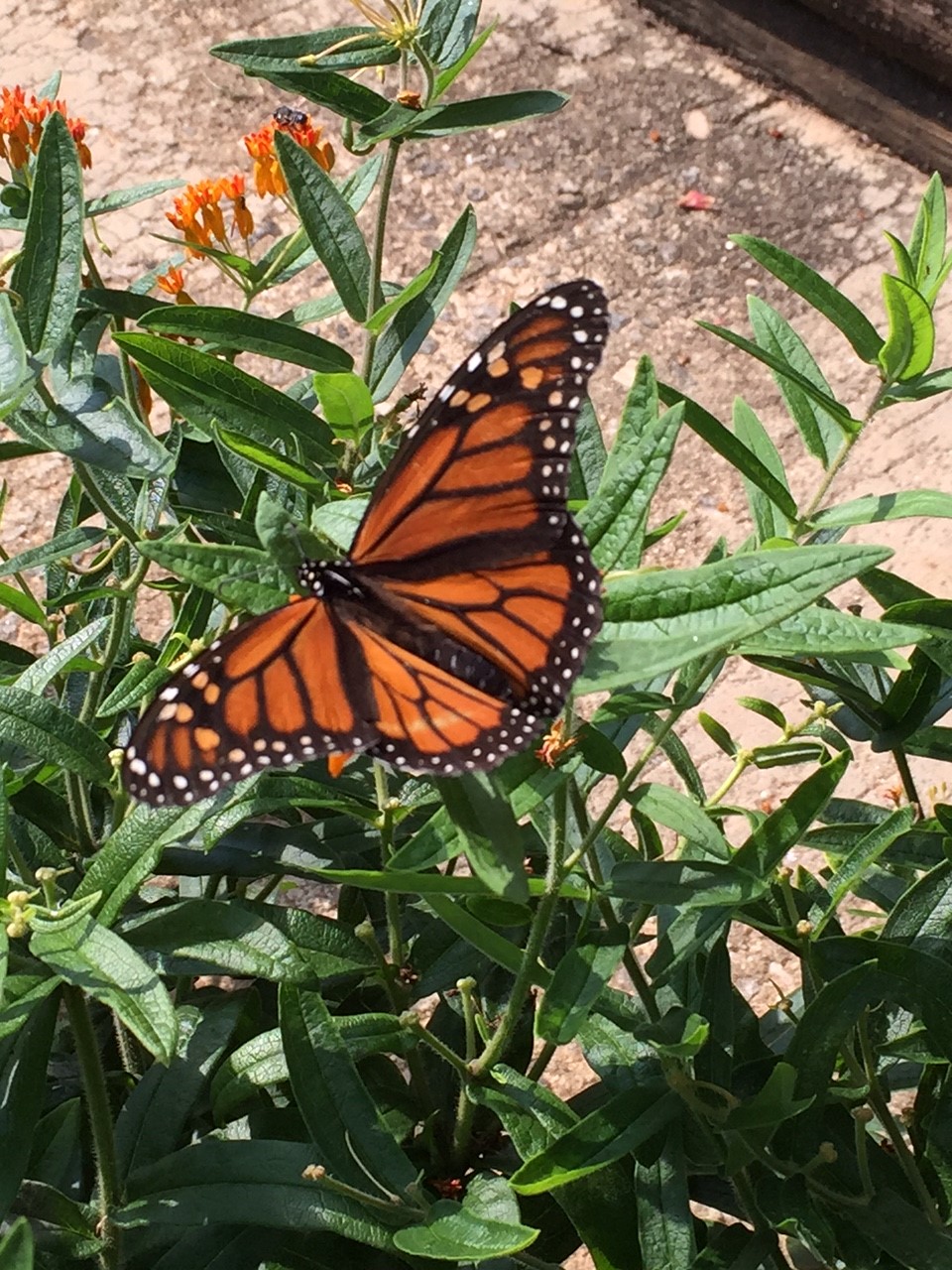In a few short weeks the Monarch butterfly will begin its annual migration to overwintering sites in Mexico. This is one of our most 
The migration of the monarch is unique. It is the only butterfly that makes a two-way migration similar to birds. Why does it do this? Unlike other butterflies which can overwinter as larvae, pupae, or even adults, the monarch is not able to survive the cold winters in northern climates. As temperatures begin to cool and available daylight shortens, monarch will use these cues and begin their migration. Reproduction ceases and they begin to store up fat reserves by having almost a feeding frenzy on the nectar of autumnal native flowering plants. Then by using air currents and thermals they begin their southwestward trip. Some have been documented as flying up to 3000 miles to reach their winter home.

In the late winter and early spring, cues to start the migration north become evident and the monarchs will begin to leave. It takes about four generations for the monarchs to reach their summer home in New England and eastern Canada
The monarch is the state insect of Alabama, Idaho, Illinois, Minnesota, Texas, Vermont, and West Virginia. Monarchs can be attracted by planting a butterfly garden with species of milkweed for the larvae and nectar plants for the adults.
Ken Ahlstrom, Ph.D., Economy Exterminators, Inc., Apex, NC 27523





